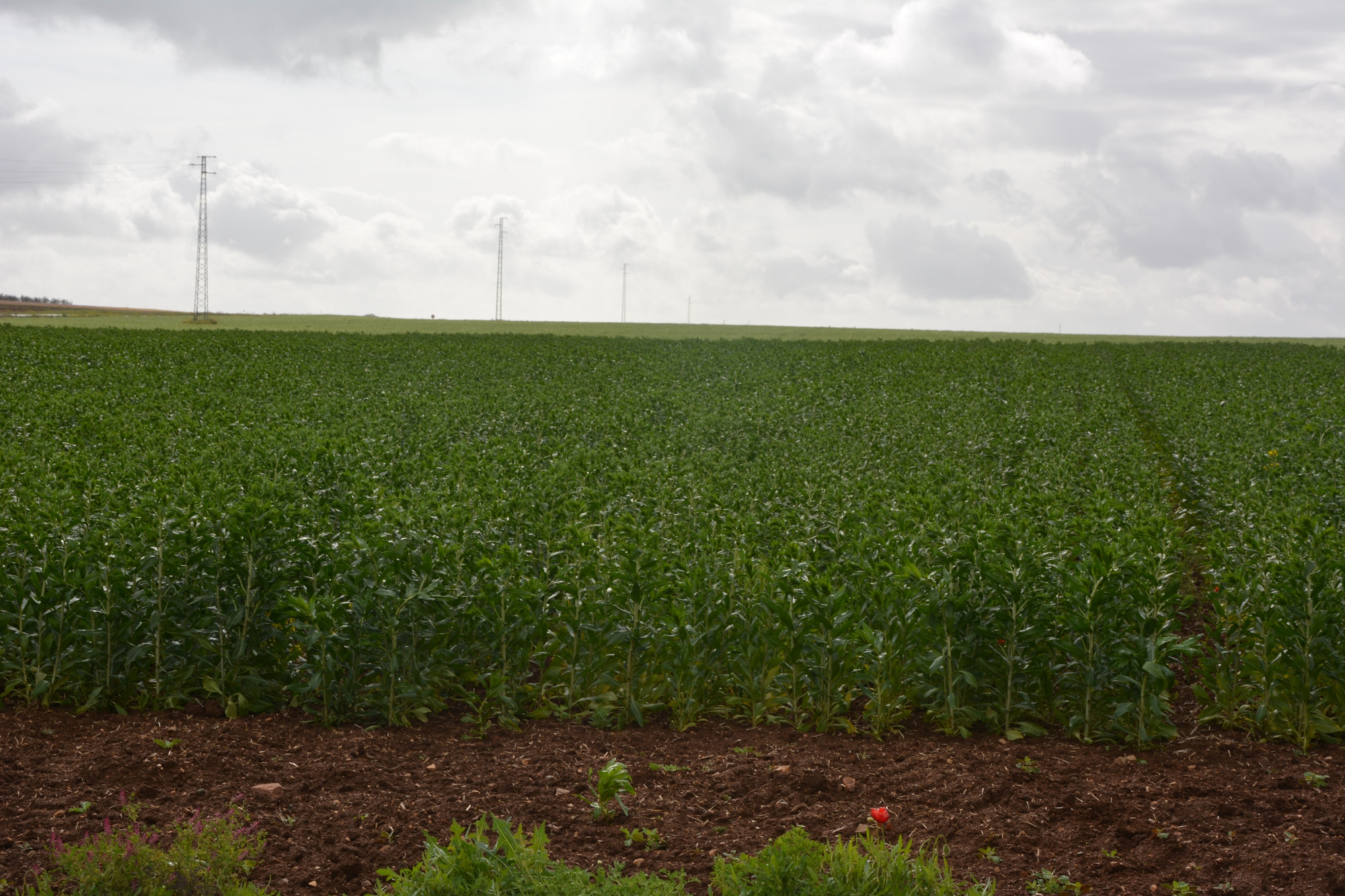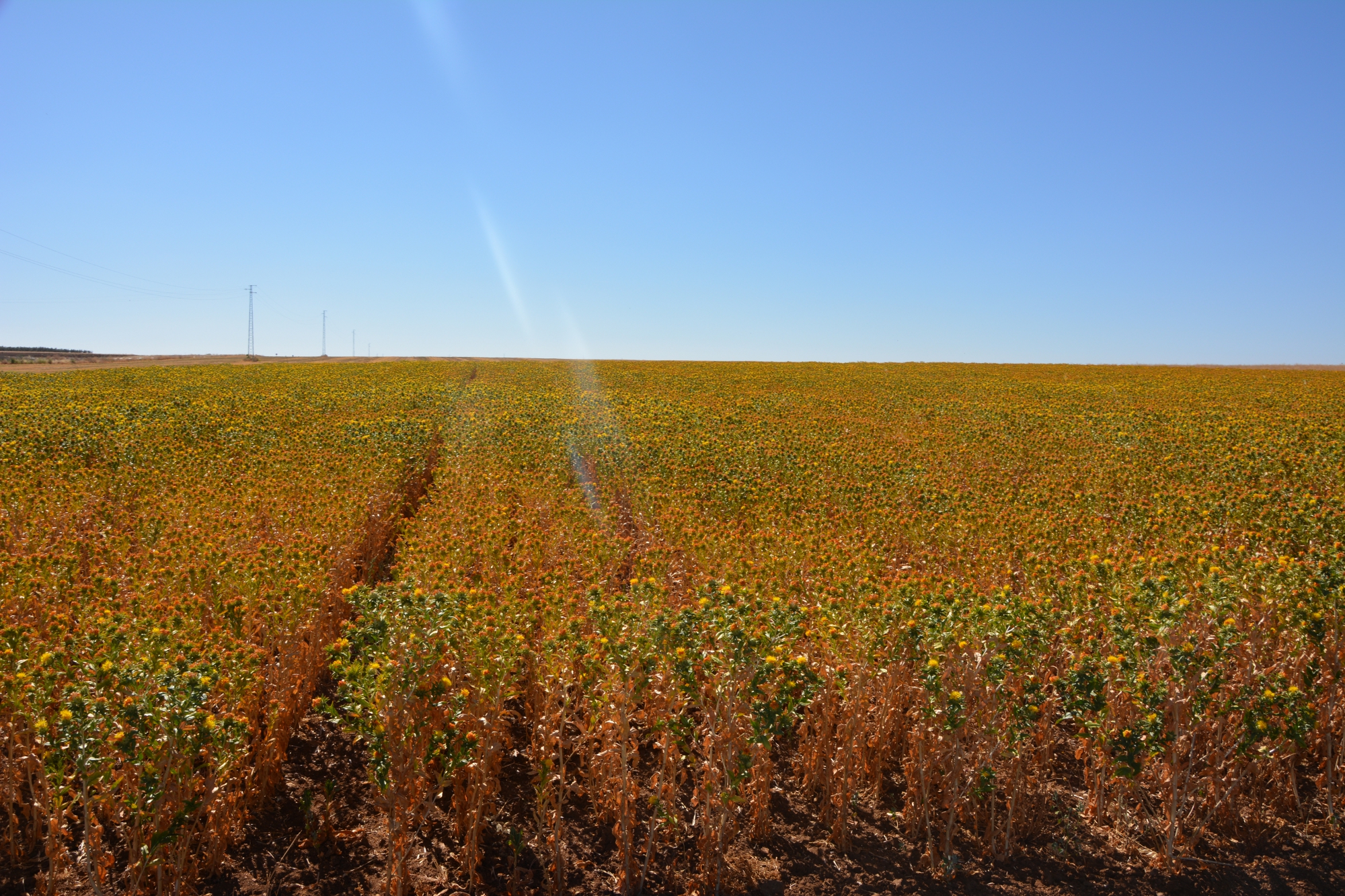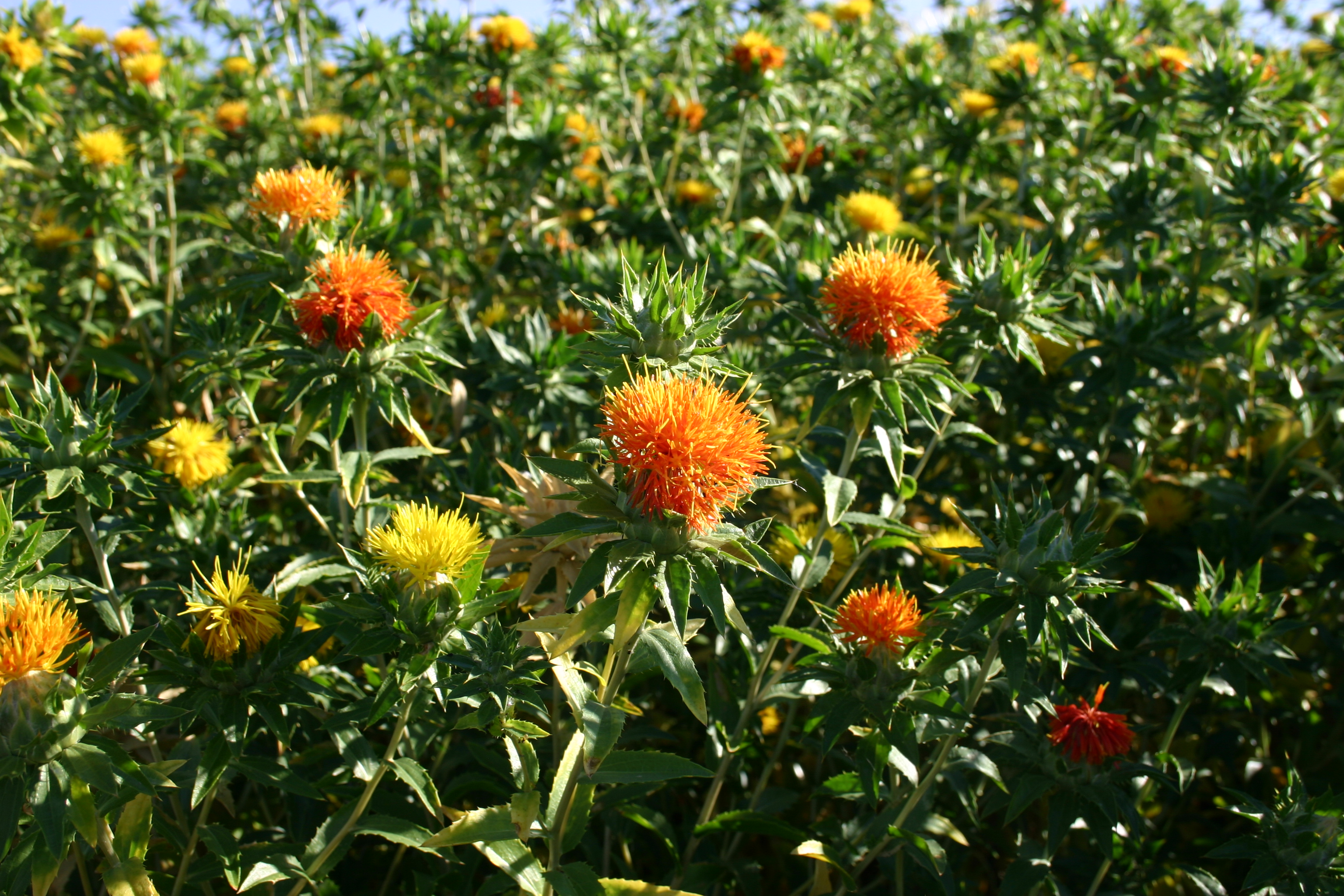Oil crops as a source of energy
 General information
General information
The commercial development of biofuels and bioproducts is currently one of the priority purposes of renewable energy development policies worldwide. These purposes are on many occasions associated with the attainment of other environmental objectives, including the reduction of CO2 emissions. The EU has planned to increase the use of renewable energies, of which a major percentage will be employed in the production of liquid biofuels.
This means that there is a new promising future for herbaceous oil crop seeds, as vegetable oils comply with the quality parameters required for the production of liquid biofuels and fibre-rich herbaceous crops can be used to manufacture bioproducts.
 Herbaceous oil crops: rapeseed and safflower
Herbaceous oil crops: rapeseed and safflower
These are an alternative to single cereal crops. These plants require low inputs; the manpower and mechanisation necessary meet the rotation requirements of dryland farming systems. Besides, oil crops like rapeseed –which have a pivotal root system- improve the soil structure by helping develop the root of the next crop and therefore it is a good precedent for cereals as it promotes their yield.
At Finca La Orden we have been working for years to adapt these oil-producing crops to obtain biodiesel. Our work focuses on the study of the growing techniques used for these plants on the drylands of Extremadura with a positive financial and energy balance. Another objective is to offer alternatives to the single winter cereal crop, especially in regions with less fertile soils where sunflower crops are very limited. We are proposing safflower as a replacement to crop rotation, since the price of its seeds in the market is very similar to that of sunflower seeds.
 Tests with rapeseed varieties
Tests with rapeseed varieties
The tests with varieties of winter and spring rapeseed at CICYTEX are performed under the Assessment of New Varieties of Extensive Crops in Spain (GENVCE) Group framework. The purpose is to assess the adaptation of new varieties of rapeseed in Extremadura primarily from a production viewpoint. On the other hand, tests are being performed with several varieties of rapeseed in irrigation farming conditions in order to assess the increase in production compared to dryland farming conditions.
 Tests with safflower varieties
Tests with safflower varieties
These tests began in 2008. Initially, they were started on 16 cultivars of safflower which after time have been selected based on the ones with the highest production of seeds. Following this work, three of these varieties (V3, V6, V7) have been taken to production on large plots.
 Obtaining biodiesel and oils for industrial use
Obtaining biodiesel and oils for industrial use
Rapeseed (Brassica napus var. oleifera) and safflower (Carthamus tinctorius L) are annual herbaceous plants that are used as oil-producing plants with the purpose of extracting oil from their seeds. Once they are harvested, their oil content is assessed in a laboratory and the remainder of the production goes onto the extraction phase. CICYTEX has an oil press and a liquid biofuel production pilot plant. This allows us to perform all the stages involved in the transformation of the crop, from the field to the end product, either as biodiesel or industrial oil.







